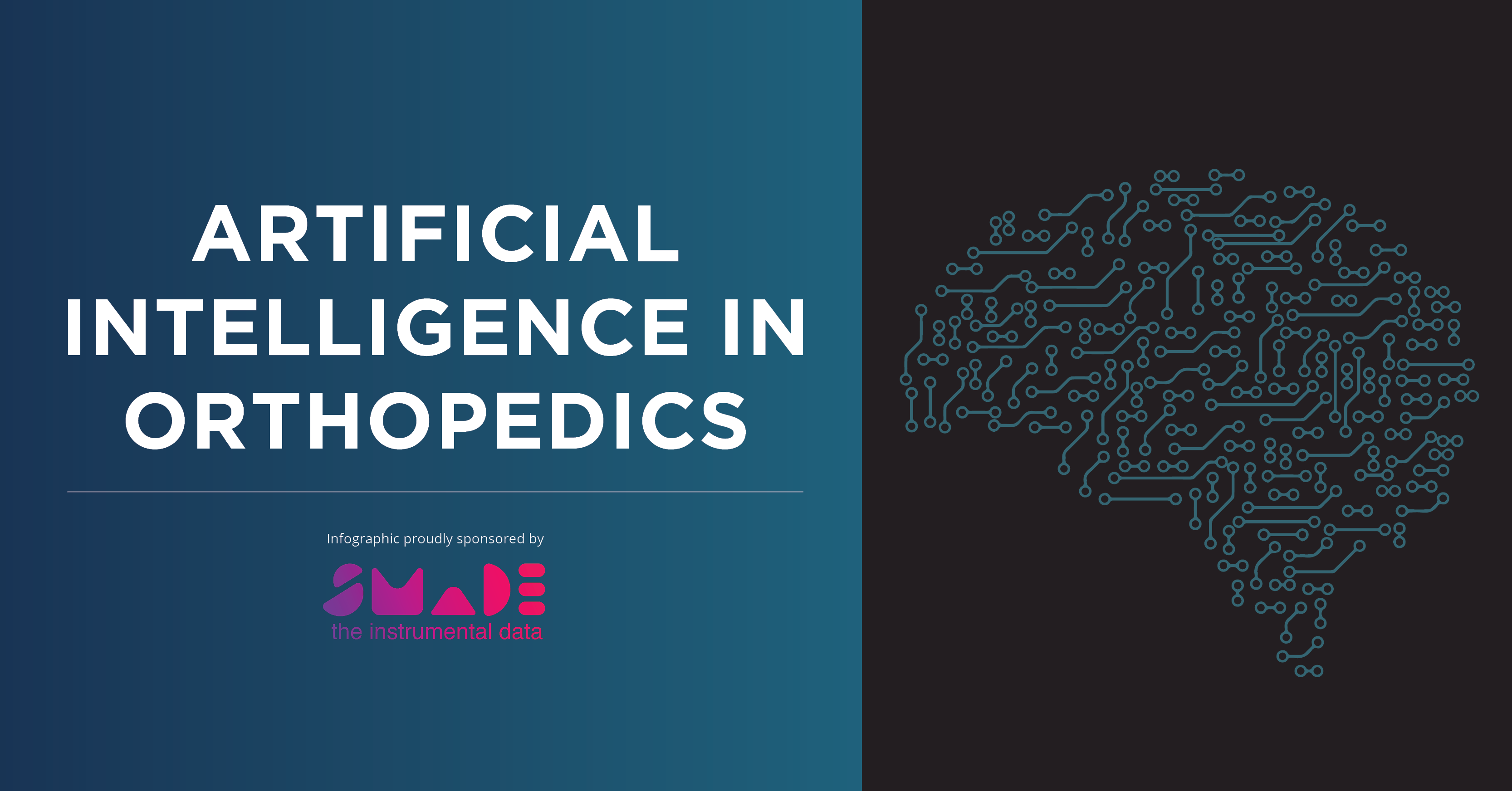
Orthopedics is experiencing a transformation as big data is being fed into artificial intelligence-powered products. Artificial intelligence (AI) and machine learning (ML) are expected to gain greater adoption in orthopedics, bringing more sophisticated technology with new benefits and applications to the industry.
Our latest infographic looks at the benefits of AI in general and how it supports surgeons and patients. We also look at the tools and applications that are applying AI. The applications span the spectrum of orthopedic care, from patient outcome predictions to O.R. navigation to wearables and apps.


Infographic proudly sponsored by SMADE.
Last month, we published comments from Zimmer Biomet, Enhatch and Proprio on the state and future of AI in orthopedics.
We wrote that more companies are leveraging AI to bring value to customers in new ways. Internally, we saw a fivefold increase in AI-related orthopedic product news in 2018. Those announcements and developments have kept a brisk pace since then.
Samuel Browd, M.D., Ph.D., a neurosurgeon and co-founder and Chief Medical Officer of Proprio, noted that data is everywhere inside the operating room but is underutilized. His company’s sensing and imaging platform is focused on analyzing data from images captured pre-, intra- and post-surgery.
“We should be looking to develop intelligent, intuitive imaging technologies that collect clean, informative datasets that we can utilize to fuel truly effective AI. While much conversation has centered on AI within surgical robotics, the conversation needs to be steered toward data enabling human performance first,” Dr. Browd said. “Enabling AI through comprehensive data strategy creates increased opportunities for healthier data collection, processing and assessment, which in turn can provide surgeons with enhanced opportunities to learn from their procedures, share their insights with their peers (and the next generation), and provide opportunities for increased evaluation and optimization. If AI-enabled technologies allow us to see the surgical scene and collect information in new ways, we have an opportunity to perform — and learn — surgery like never before.”
The companies working on AI largely agree with Dr. Browd’s last comment. AI has the potential to unlock new ways in which we develop and use technology in orthopedics.




